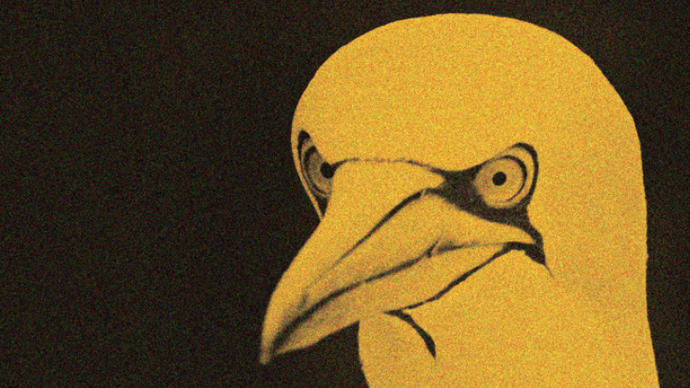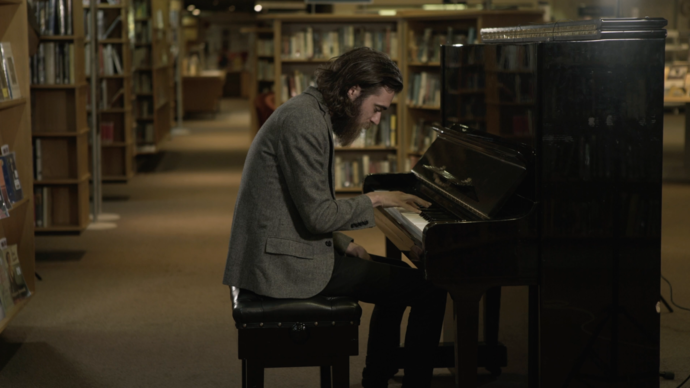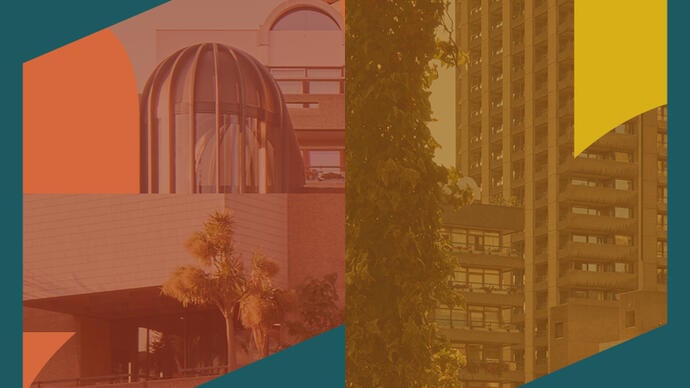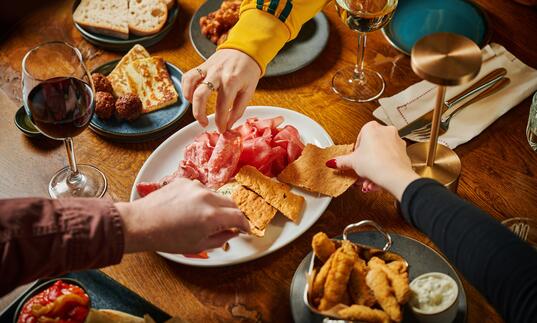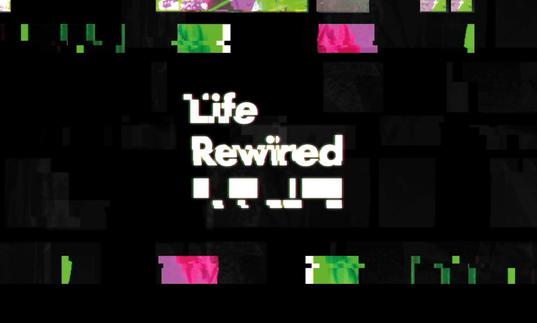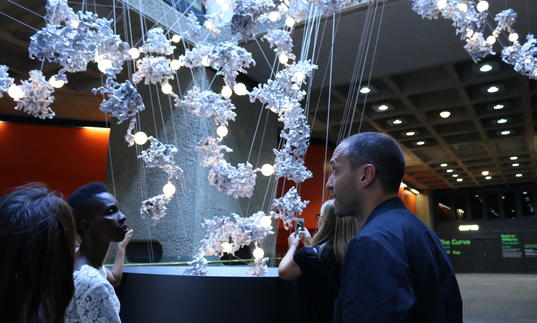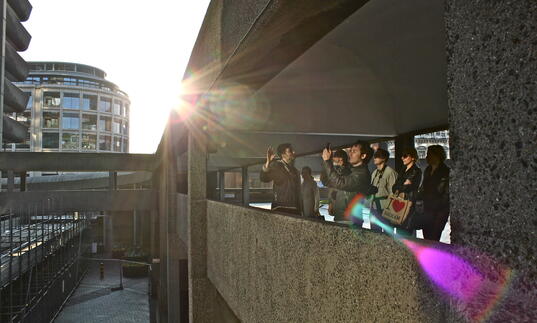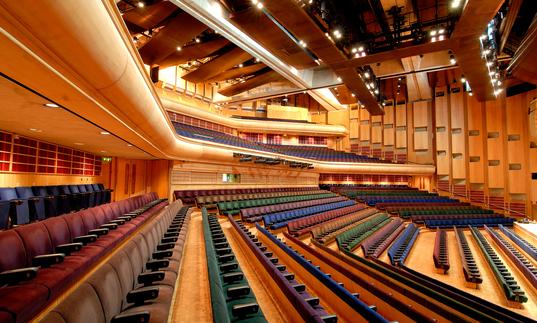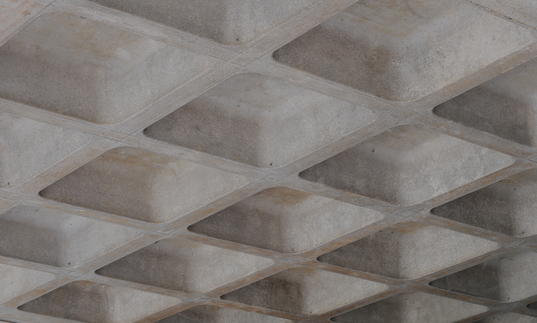In the new video for Erland Cooper’s ‘Spoot Ebb’ – named after a spring tide that conveniently ebbs far enough out to expose spoots (razor fish) for easy picking– the introductory din of urban traffic recedes as a modern-classical patina of strings, piano and pulses fade in and Cooper climbs stairs to the hub of his east London recording studio. The camera momentarily zooms in to a photograph of Orkney, Cooper’s birthplace, before following him into a room of equipment where he twiddles a couple of settings on a synthesiser, and presses a button on a reel-to-reel tape recorder – suddenly, Cooper is standing on the Orkney seashore, gazing out to the majestic expanse of water as an instrumental soundtrack ebbs and flows with a mixture of melancholia and euphoria. A bird swoops in the distance.
And that is, in essence, the conception behind his 2018 album Solan Goose and its new sequel, Sule Skerry, which Cooper is launching tonight at this Barbican concert.
‘We all experience stress in our lives, we all go through ups and downs,’ says Cooper, ‘but I was feeling increasingly claustrophobic in the city, to the point of extremity. I found myself arriving at my studio, and taking the bang and clang of London’s ambient noise and hearing a note or a tone, playing something of that on a keyboard, and then improvising piano over it. So, I was turning something aggressive and horrible into something gentle and relaxing. I’d file it away, and return to what I was meant to be doing that day.’
What Cooper was meant to be doing was production work for himself and others, as well as honing more of the inventive, maverick songs that distinguished his folk-rock bands Erland & The Carnival and The Magnetic North.
The latter’s 2014 album debut was titled Orkney: Symphony Of The Magnetic North, so Cooper was already feeling the tug of the island that he’d left when he was eighteen, to explore the world and expand his mind. London became home, with its seemingly unlimited supply of musicians and venues, but he longed for Orkney’s elemental beauty – its peace, space, solitude, flora and fauna. To pass the time when he was travelling on the Underground, Cooper would recall the names of the native birds in the Orkney dialect, like Cattie-face (short-eared owl), Tammie Norie (puffin) and Solan Goose (gannet), which became the titles of his instrumental stockpile.
’It transported me back home, for a period,’ he recalls. ‘Which then informed the narrative of the music I was writing, taking me to where I needed to go, thinking of music in terms of communities and connections.’
Still, Cooper decided the music was only for himself, ‘until my publisher heard me playing it in the background and asked to hear it all. Afterwards, with a tear in her eye, she said I had to share it.’ The decision made, he refined the project, inspired by the famous Orcadian poet George John Mackay Brown, especially his poem ‘Letters From Hamnavoe’, which begins, ‘The essence of Orkney's magic, is silence, loneliness, and the deep marvellous rhythms of sea and land, darkness and light.’
‘There’s an entire map right there!’ says Cooper.
He subsequently plotted a triptych of albums: Solan Goose represented the air, Sule Skerry (named after an uninhabitable outcrop of rock 37 miles from the Orkney mainland) is the sea and the album Cooper is currently writing will be the land. Besides its beautifully layered, shifting
soundscapes (Cooper talks of being influenced by Maxwell Davies, Sibelius, Arvo Pärt and Vaughan Williams), Sule Skerry features field recordings (beneath the lifeboat pier; inside a Neolithic cairn; thunder over the bay), spoken word from Orkney locals and poetry written for the album by Will Burns (read by folk singers Kris Drever and Kathryn Joseph), and songtitles such as ‘Groatie Buckies’ (cowrie shells).
Burns, and Leo Abrahams (who plays ‘ambient guitar’ on ‘Spoot Ebb’) also appear at tonight’s show alongside Cooper’s live ensemble of Anna Phoebe (violin), Klara Schumann (cello), Jacob Downs (viola) and Lottie Greenhow (soprano voice, Hardanger fiddle), with Cooper on ‘piano tape loops and other ambient layers.’
‘I love exploring these new elements,’ he says. ‘I get to work with classical musicians, who make my eight or nine notes sound beautiful. It’s such a joy to get to watch it unfurl.’
Also unfurling, in the intervals between tonight’s support act, pianist Alex Kozobolis, and Cooper’s performance, is Murmuration, a three-part, half-hour composition that he co-wrote (with William Doyle) between Solan Goose and Sule Skerry, parts of which were incorporated into NEST, the light-and-sound installation commissioned for the opening of London’s first Borough of Culture celebrations. Footage filmed in Orkney during the creative process, shall be shown in conjunction with this.
But while Cooper’s head is in London, his heart and soul belong to Orkney.
‘I’m not trying to be too overt about it all, it’s too easy to make something about Orkney on the nose, like a tourist brochure,’ he concludes. ‘All I’m trying is to capture an essence of Scotland and island life, something that can be real or imagined, and it can be escapism. But I think that’s what nature does, and the sea, it’s the one true reset for me.’

